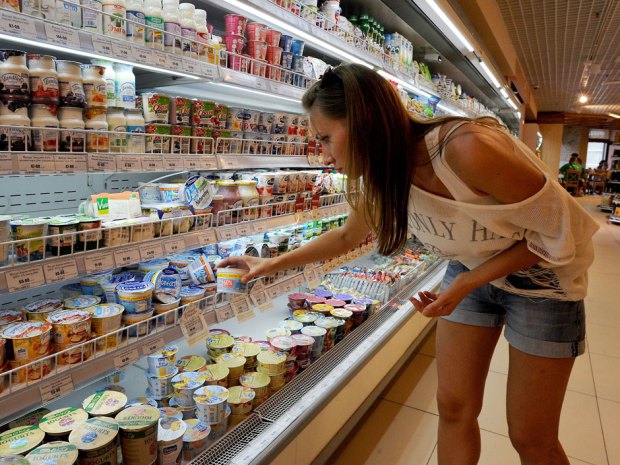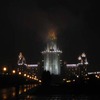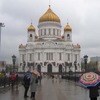Russia Bans The Imports: What Would The Consequences Be?
Creamy French cheeses, Australian Ribeye steak and seafood risottos are heading off the menu at restaurants after the ban on imports of all fish, meat and dairy produce. As a result, Moscow's sweeping sanctions on European food have sent Russian restaurateurs, retail chains and food producers scrambling for alternative supplies and bracing for Soviet-style shortages. Wealthy with petrodollars while the country's energy reserves drove a strong economy, Russians have enjoyed a rich choice of eateries since the 1991 Soviet collapse — and ate out with the gusto of a generation that still remembered times when shop windows were bare and the streets were empty after sundown. Sushi is particularly popular, ubiquitous across the country and even gracing the menu of Italian and French restaurants. But it's a fetish some might now have to do without.
Rosinter, one of Russia's largest restaurant chains which runs Sushi cafes nationwide, said more than 50 percent of the food it serves up is imported. It expects sanctions to exacerbate a business downturn already happening as political instability pushes the economy into recession. The effect of sanctions in the West is already tangible. European dairy firms have halted production of cheese and butter destined for Russia and Norwegian salmon prices are expected to fall 10 percent this week.
The trade restrictions — a response to U.S. and EU sanctions imposed over Russia's actions in Ukraine — have hurt farmers in the West for whom Russia is by far the biggest buyer of EU produce. But they will also hit consumers at home, isolating them from world trade to a degree unseen for more than two decades.
Not everyone is heartbroken due to the sanctions, however. "I am proud that we've stopped being the boy who gets bullied. It's about time," restaurateur Andrei Dellos told independent television channel Dozhd. "There won't be oysters, but we'll make do. We'll live without oysters."
One restaurant in Yekaterinburg has already come up with a special, albeit short, "Sanctioned Menu" of Russian-produced foods and other food experts are echoing the patriotic fervor.
While Russian farmers hope to turn Western exporters' loss into their victory, others in the food industry are skeptical that local producers can fill the gap.
Some note how long it has taken Russia's farm industry to recover from chaotic years of poverty after the collapse of the Soviet system — when livestock was slaughtered en masse for lack of feed — and point out that it still lacks resources. Nonetheless others are optimistic and glad of the chance to sell more of his produce to consumers in need.

 Podium
Podium





